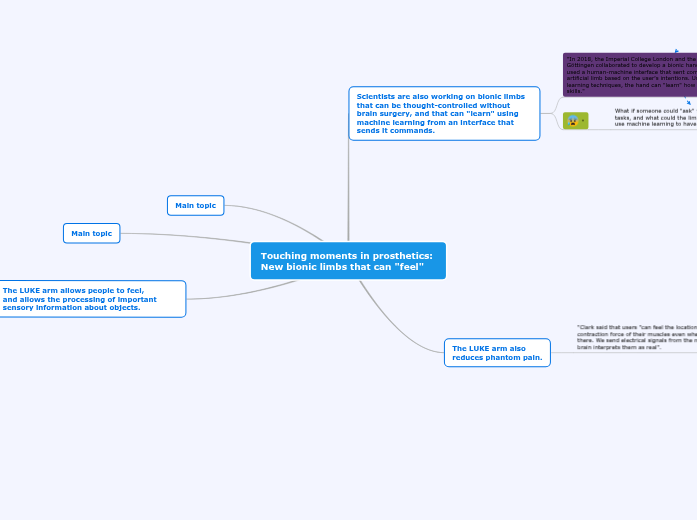Touching moments in prosthetics: New bionic limbs that can "feel"
Scientists are also working on bionic limbs that can be thought-controlled without brain surgery, and that can "learn" using machine learning from an interface that sends it commands.
"In 2018, the Imperial College London and the University of Göttingen collaborated to develop a bionic hand. The hand used a human-machine interface that sent commands to the artificial limb based on the user's intentions. Using machine learning techniques, the hand can "learn" how to perform new skills."
"
What if someone could "ask" the arm to perform superhuman tasks, and what could the limits of its capabilities be? Could it use machine learning to have superhuman precision?
Main topic
Main topic
The LUKE arm also
reduces phantom pain.
"Clark said that users "can feel the location and the contraction force of their muscles even when muscles aren't there. We send electrical signals from the muscles, so the brain interprets them as real".
What kind of feelings could a bionic arm like this send to the human body?
The LUKE arm allows people to feel,
and allows the processing of important sensory information about objects.
"The brain "translates" neural impulses into characteristics such as firmness, texture and temperature"
What if the arm gave someone the ability to feel more things about an object, like if they could feel an object's composition or tension?
"By using the LUKE Arm, Walgamott could "feel" the fragility of a mechanical egg, just as he would have with a natural limb."
